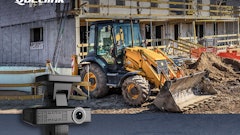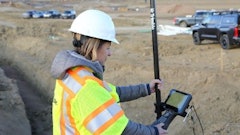Too little is written to help those who lead frontline crews into developing into better managers. Notice the word "managers" rather than "leaders." Why the difference?
Leadership is critical to construction, including concrete-focused businesses. We need leaders who can motivate, inspire, direct and coach today's workers. However, just as critical to the overall success of any work crew is the need for the crew to be organized, disciplined, quality-based and timely in their work endeavors. This latter description of efforts falls under the umbrella of management. Managing is the act of fulfilling the duties necessary to empower or enable the workforce to be at the jobsite on time, to have all their tools and equipment, and to ensure that their materials arrive when needed. Let's look at a few critical components of effectively managing a crew for more profitable results.
1. Management of direction
There are several components to management that we could begin with, but let's look at the need to understand the direction of a project. Direction represents both how the schedule is leading a crew to accomplish a project as well as what direction the work crew is heading. The schedule is simple enough, but should be clearly understood by the manager (i.e., superintendent, project manager, supervisor or foreman) to understand the length of time involved for the upcoming project or projects. Likewise, the manager needs to fully understand the direction of his work crew. This suggests that the manager understands what his latest performance efforts have produced and whether his crew is both prepared and capable of taking on the upcoming schedule of work.
2. Management of time
Time management is of prime concern to any manager. Time management forces a manager to consider how to best utilize the clock so vital work efforts are scheduled, complied with or completed. It requires the manager to ensure the crews are prepared and have the needed resources to complete the work, job files are clear to read and have the most recent and accurate information, and tools and equipment are prepared for working conditions and placed in the appropriate holding spaces to prevent any wasted time looking for equipment and tools that work.
3. Management of resources
I just noted the importance of tools and equipment being ready for work crews - overseeing these items requires a manager to be on his or her toes. By developing an inventory management system, needed tools and equipment will always be available. Additionally, a manager should implement a preventive maintenance program to guarantee the available tools and equipment are in working order. Many construction companies fail in the management of their resources and thus spend thousands of dollars a year in crisis management "fix-ups" or wasted time looking for available substitutes from leasing companies or friendly competitors who will give them a "loaner."
4.Management of finances
Perhaps the component of management that construction leaders are least effective at managing is their project finances. Managing finances requires an understanding of the project budget; that is, what the estimated costs and expenses are for labor, equipment, tools and materials. Managing finances requires that you know your labor rate for your working crews. For example, how many square feet of formwork can they build in an hour as a crew? Or, how many cubic yards of concrete can your crew pour and finish in an hour? If your work crews are producing at a slower rate of production than was used for the estimate, you will find it difficult to make money. Likewise, if your crews are producing at a faster rate than was used for the estimate, then you should see greater profits from the production effort, barring any problems with quality or safety.
5.Management of quality
All construction companies say that they do quality work but few actually manage the process to achieve quality. Effective management of quality requires that the manager recognizes any existing work processes or procedures that were developed to produce good results the first time. This is very critical for construction companies because doing things right the first time guarantees a higher profit margin on work produced. Therefore, the manager should be diligent about making sure crews are organized and have everything they need before leaving the yard each morning, that they are following proper site work preparation, work flow, and safety processes while at the jobsite, and that they are staging the job and their vehicles at the end of the day for what they will need to do when they begin the next day. The manager's time spent here will often produce quantifiable results on the very next job.
6.Management of schedules
Most construction companies recognize there are several specialty subcontractors at work at the same time and at the same spot on the jobsite at any given time. Therefore, the wise manager builds this into their knowledge and looks to coordinate their own work crew's schedules with those other crews who will be at the jobsite. Too many crews have been prevented from working on a given day only because their manager failed to contact other managers to confirm arrival, starting or completion times. Such an oversight can cost a work crew precious time completing their own work and prevent them from achieving the profitable performance results they were hoping to realize.
Certainly the six management components listed in this article should help broaden the scope of any construction superintendent, foreman, project manager, project engineer or supervisor. Again, let me stress, moving our construction bosses to be leaders is also critical. I should know as I have written about or provided leadership-based training and education to thousands of construction leaders over the past 20 years. However, I still find that many of these same leaders are horrible when it comes time to really planning out their work crews' days, weeks and months. Just because a leader is gifted with inspiring others to do the hard things in construction doesn't necessarily mean they are fully capable of putting a job file or schedule into their workers' hands and have their crew members understand what they are scheduled to complete. ???
Brad Humphrey is a former construction company owner and president of Pinnacle Development Group, a consulting source to the construction industry. He is a popular speaker at World of Concrete and other industry events and has helped more than 200 companies improve their business operations. For more information about Brad and his company, visit www.pinnacledg.com.




















